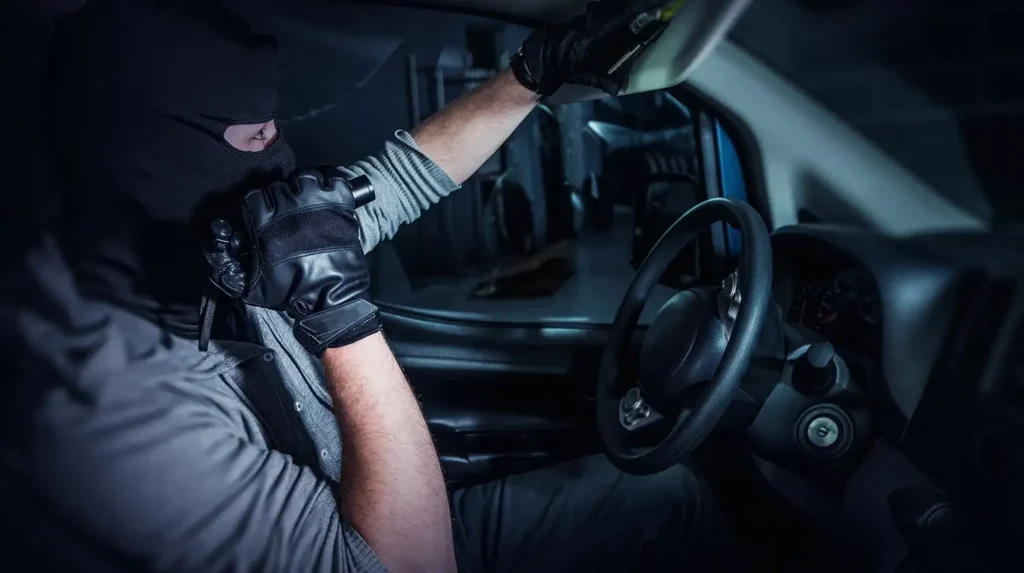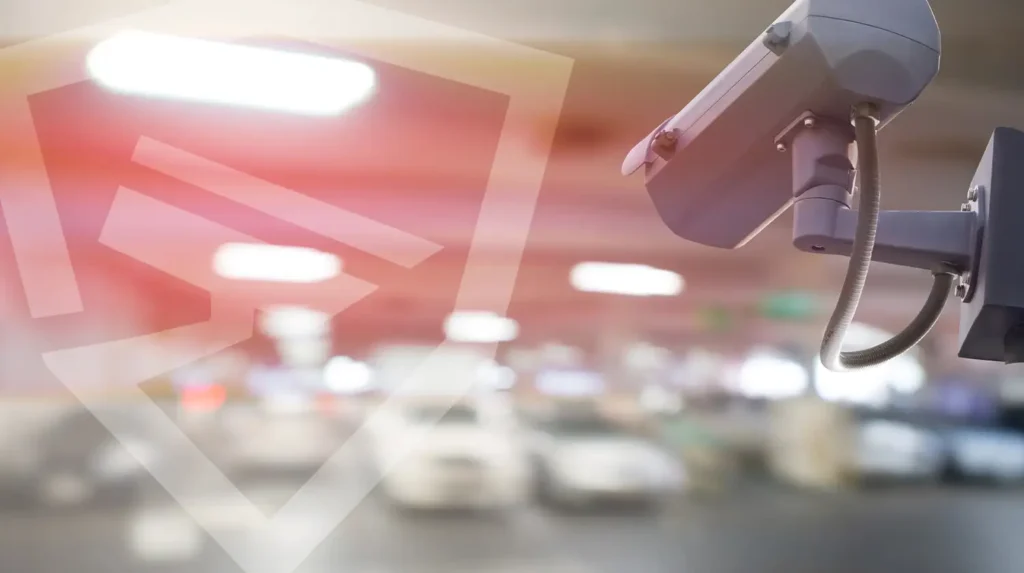The United States has witnessed a significant spike in vehicle thefts post-pandemic, reaching near-record levels. In 2023, over one million vehicles were stolen, marking the second consecutive year this threshold was surpassed—the highest figures seen since 2008. This surge is attributed to various factors, including advancements in technology that thieves use to bypass modern security systems like keyless entry and relay attacks on key fobs.
The National Insurance Crime Bureau (NICB) has identified certain car models, particularly from Hyundai and Kia, have become prime targets due to viral social media trends that showcase how to steal these vehicles. Recent trends indicate a shift in vehicle theft patterns, moving away from the previously most-targeted full-size pickups. In 2023, the states with the highest vehicle theft rates were California, Texas, and Florida, especially in urban and densely populated areas. Notably, the District of Columbia and Maryland saw some of the largest year-over-year increases.
The National Insurance Crime Bureau (NICB) stresses the need for a united approach among law enforcement, the automotive industry, and local communities to devise more effective strategies to address the growing problem of vehicle theft.
The surge in auto thefts carries significant economic consequences, affecting auto insurance premiums and imposing a broader financial burden on victims. Beyond the immediate loss of their vehicles, victims endure considerable emotional and logistical challenges. This increase in vehicle thefts highlights a persistent and complex challenge in crime prevention and community safety, especially in the aftermath of the pandemic.
What The Security Industry Can Learn from Professional Car Thieves

By speaking and working directly with professional car thieves, dealerships and other frequent targets can create a fascinating case study in strategic defense, with professional car thieves unexpectedly serving as teachers. By critically examining their methods the security industry can develop more forward-thinking protection strategies.
Key Insights from “Professional” Thieves
- Adaptability and Innovation: Car thieves often stay ahead of security measures by constantly adapting their techniques and employing innovative methods to bypass modern security systems. The security industry can learn from this by continuously updating and evolving its own tactics and technologies, ensuring they are not just reactive but also proactive in anticipating new types of threats.
- Understanding Technology: Professional car thieves have a deep understanding of the technology they are manipulating. They know how car alarms, GPS trackers, and smart keys work, and find ways to circumvent these systems. Similarly, the security industry must have a thorough understanding of the technology it deploys, including potential vulnerabilities, to protect against exploits.
- Integrated Security Approach: Car thieves often exploit the weakest link in a vehicle’s security. This could be a physical weakness (for example: an easily picked lock) or a technological one (like intercepting or replicating key fob signals). The security industry can take this as a cue to develop more integrated security solutions that address both physical and cyber aspects, ensuring that all bases are covered and reducing potential vulnerabilities.
- Focus on High-Value Targets: Thieves typically target high-value vehicles that offer the highest return on their efforts. This focus on value can be translated into the security sector by prioritizing resources and protections around the most critical assets of a business or system, understanding that resources are finite and should be allocated where they can offer the most benefit.
- Insider Threats: Sometimes, vehicle theft involves insiders, like dealership employees or service center technicians, who have legitimate access to car keys and personal information. This highlights the importance of vetting employees and implementing strict access controls and monitoring within organizations to minimize the risk of insider threats.
- Education and Awareness: Finally, one of the most effective deterrents against car theft is the education of dealerships, commercial property owners, and individual car owners about the risks and the measures they can take to protect against vehicle theft. Similarly, the security industry should focus on educating clients and the public about potential security threats and the best practices for protection.
By paying attention to the latest methods and tactics of professional car thieves, the security industry and its clients can better prepare and protect themselves against similar tactics used at their businesses, properties, or communities.
Learning Directly from Your Adversaries- Security Insights from a Professional Car Thief

In a fascinating deep-dive into the mind of professional car thieves, YouTuber Tommy G spends time with “The Most Wanted Car Thief in America,” giving insight into just how simple it can be for car thieves to target, steal, and go unpunished- when it comes to vehicle theft today. At the time of this writing, the video has nearly 5 million views- and while many viewers may be simply trying to understand the mindset and motivations of vehicle thieves, others may be seeking inspiration for heists of their own.
In the video, Tommy G tags along with the thief, “Felix”, whose identity is hidden via a hoodie, gloves, glasses, mask, and voice modulation, to meet with a willing car dealership owner in Wisconsin for a demonstration of just how easily practiced thieves can evade traditional security measures.
During an initial conversation with the dealership owner, “Felix” tells him that circumventing the built-in theft protections in many vehicles can be easily bypassed- with the right tools. “GM came up with a new thing- 24-digit PIN, and these tablets I got with me right now can’t generate the pin, but these aren’t impossible, it’s literally just buying a new piece of tool (sic) , but I just haven’t bought it,” he continues, “they’re selling OEM Keys, locksmithing tools, anything- you can buy key cutters on Amazon.” Felix goes on to explain that many thieves targeting dealerships specifically are sophisticated, and not the sorts of slapdash, opportunistic door-pulling thieves you might find cruising retail and multifamily parking lots. “They’re coming into the lot, they’re taking the VIN down, they’re getting a key cut by the VIN, and they’re coming and opening the door like they own it.”
As shocking as these details may be, many in the automotive industry are unfortunately familiar with the fact that there’s money to be made in the stolen vehicle trade at a variety of checkpoints. One side business? VIN-washing. You may be more aware of other “washing” methods. For example, Title Washing is a well-known aspect of auto fraud and involves manipulating a vehicle’s title to hide its salvage or damage history. Title fraud criminals exploit loopholes in state regulations to erase negative information from a vehicle’s record, presenting it as clean to potential buyers. According to “Felix,” entirely fake titles that bear fake VIN numbers can be purchased from foreign countries as well.
VIN-washing, on the other hand, involves paying “specialists” to take in a stolen vehicle, disassemble the wind shield, peel the stickers off the doors, and re-engrave the VIN numbers wherever they would normally be found on the car, including the engine bay. Entire side businesses are set up to “VIN-wash” stolen vehicles, with “add-ons” including reprograming the ECU, swapping out the vehicle’s original VIN with the new. An interview with one of these “specialists” claims that the price for VIN-washing ranges from $2500- $5000, depending on how thoroughly the job is done.
With experienced auto dealership owners and operators facing this complicated landscape of sophisticated thefts and getting fooled, what happens when private vehicle owners are looking to buy or sell a vehicle? Or when their new purchase turns out to have been “washed” or fraudulent?
The impact of these scams is profound. Unsuspecting buyers may end up with unsafe, unreliable vehicles that can result in costly repairs and insurance complications. When the vehicle’s true history is discovered, it can lead to significant depreciation in value, making it nearly impossible to resell without a loss.
Victims of these scams can face a range of legal issues, including the loss of their vehicle if it’s found to be stolen or involved in criminal activities. Buyers are advised to thoroughly check a vehicle’s history through reliable sources like CARFAX or AutoCheck, and to be cautious of deals that seem too good to be true.
With the internet, scams and ways to get around security measures have gotten incredibly sophisticated. “Felix” explains, “People are using fake credit profiles, buying cars from the dealers under fake profiles, and then selling them…. CARFAX is not safe either, I can have somebody generate a CARFAX history behind a fake VIN and you’ll look at it and go, they’ve been maintaining this car…”
To protect against scams like these, potential buyers, including those accepting trade-ins at dealerships, have to be vigilant. However, sometimes even obtaining a comprehensive vehicle history report, inspecting the car’s title for any signs of tampering, and possibly consulting with legal or automotive professionals before making a purchase isn’t enough. The increase in title and VIN washing scams underscores the importance of due diligence in the used car market, where knowledge and caution are key defenses against fraud.
Maximizing Returns with an Integrated Security System

Implementing an integrated security system, complete with remote video surveillance, video analytics, and access control, offers significant advantages not found in conventional security measures. Businesses and communities partnering with Stealth Monitoring typically report seeing a return on investment within just a few months.
A skilled security expert can conduct a comprehensive assessment of a dealership, multifamily residential community, commercial or retail property, parking facility, construction site, or other premises to tailor a security setup that includes both remote video surveillance and monitoring. “Remote” indicates that the monitoring personnel operate from a location external to the dealership, maintaining vigilance without physical presence on-site.
Stealth’s security professionals position cameras at strategic points around a property for more comprehensive coverage. Video analytics proactively monitor the premises for signs of any suspicious activity, promptly alerting operators to potential issues, allowing for immediate action. This includes issuing warnings through onsite speakers and notifying law enforcement, helping to ensure a rapid response to any intrusion.
Employee theft remains a significant concern; however, the presence of video surveillance can significantly mitigate this risk by deterring internal theft.
Stealth’s system also helps to provide defense against fraudulent liability claims- in service departments at dealerships, or in other high-risk spaces, like garages and parking lots. For instance, vehicle owners might claim that damage occurred during a service appointment at a dealership, but remote surveillance and monitoring can effectively counter any claims with definitive video evidence.
In situations where a customer or resident dispute arises, the monitoring team can swiftly review footage to get the facts, helping to prevent potential liability issues. For example, a dealership avoided a costly liability claim by providing clear evidence from their security footage, demonstrating the value of having proof readily available.
By choosing Stealth Monitoring, businesses and other commercial properties gain access to cutting-edge security technologies and benefit from Stealth’s extensive North American presence. Stealth’s network fosters strong relationships with local law enforcement, helping to ensure quicker police responses backed by reliable video evidence.
The investment in this integrated security solution covers hardware, technology, monitoring, and ongoing maintenance, with the average Stealth client achieving an ROI in a matter of months. For further insights into security solutions, vehicle theft prevention, and risk mitigation, contact us now and speak with a security specialist in your area.

